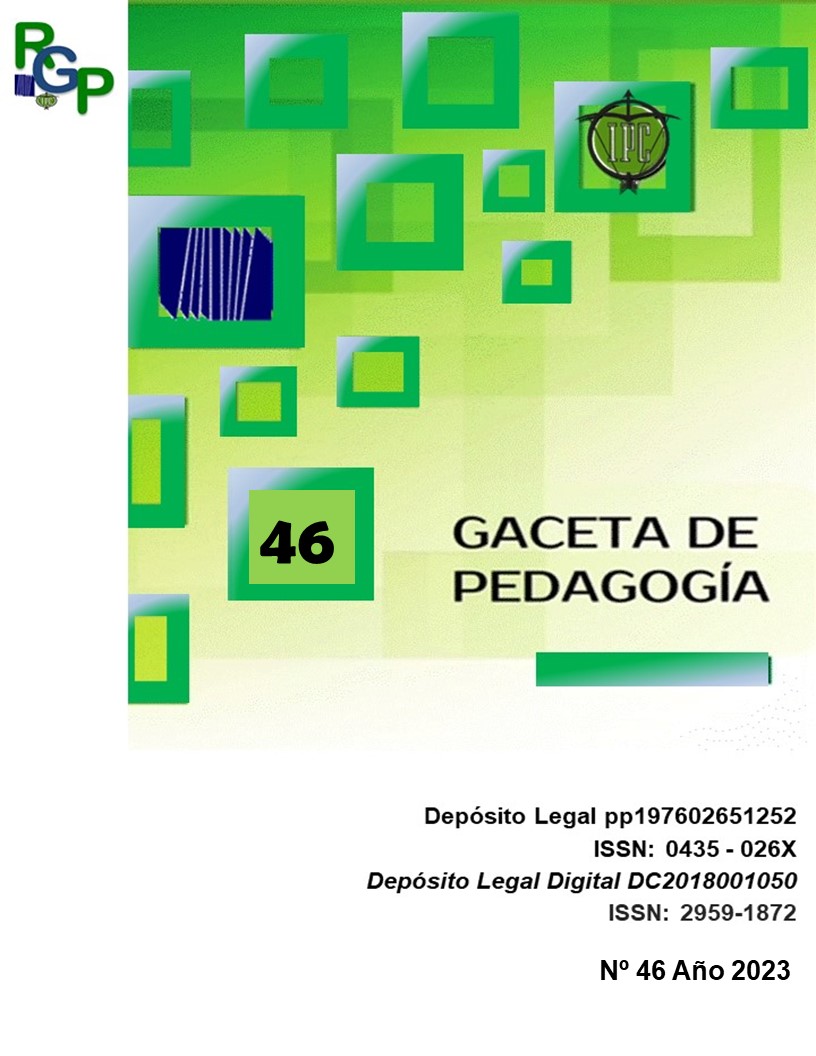Los desafíos de la psicología para la construcción de nuevos paradigmas y responder a problemas emergentes pandémicos
DOI:
https://doi.org/10.56219/rgp.vi46.2067Palabras clave:
Enfoques, Modelo, Paradigma, Holístico, EspiritualResumen
La psicología hoy más que antes tiene el reto de existir en una sociedad inmersa en un entorno inestable y de incertidumbre. Exploraciones de grandes alcances aseguran nuevas posibilidades como la neurociencia, la física cuántica, la medicina y la informática; en contraste con las guerras y enfermedades pandémicas invitan a los estudiosos en el comportamiento humano a construir nuevos paradigmas que den respuestas y soluciones a los altos niveles de suicidio, vacío existencial, postpandemia, salud mental, farmacodependencia y violencia, entre otros. El presente artículo se orientó desde la epistemología a mostrar rutas que la psicología como ciencia ha brindado al conocimiento del ser humano. Para este recorrido se revisaron diversos enfoques, documentos y análisis de planteamientos teóricos; todo ello con el fin de asumir una nueva mirada que permite comprender a las personas como seres relacionales dentro de una dinámica bio-psico-social-espiritual-cosmológica y de esa forma encontrar nuevas posibilidades para lograr niveles de bienestar satisfactorios.
ABSTRACT
Psychology today more than before has the challenge of existing in a society immersed in an unstable and uncertain environment. Far-reaching explorations ensure new possibilities such as neuroscience, quantum physics, medicine and informatics; In contrast to wars and pandemic diseases, they invite scholars of human behavior to build new paradigms that provide answers and solutions to high levels of suicide, existential emptiness, post-pandemic, mental health, drug addiction, and violence, among others. This article is oriented from epistemology to show routes that psychology as a science has provided to the knowledge of the human being. For this tour, various approaches, documents and analyses of theoretical approaches were reviewed; all this in order to assume a new look that allows us to understand people as relational beings within a bio- psycho-social-spiritual-cosmological dynamic and thus find new possibilities to achieve satisfactory levels of well-being.
Key words: Approaches, Model, Paradigm, Holistic, Spiritual
RESUMO
A psicologia é hoje mais do que nunca desafiada a existir numa sociedade imersa num ambiente instável e incerto. Explorações de longo alcance garantem novas possibilidades como a neurociência, a física quântica, a medicina e a informática; em contraste com as guerras e as pandemias, convidam os estudiosos do comportamento humano a construir novos paradigmas que forneçam respostas e soluções para os altos índices de suicídio, vazio existencial, pós-pandemia, saúde mental, drogadição e violência, entre outros. Este artigo foi orientado a partir da epistemologia para mostrar percursos que a psicologia como ciência tem oferecido ao conhecimento do ser humano. Para este percurso foram revistas várias abordagens, documentos e análises de enfoques teóricos, tudo com o objectivo de dar um novo olhar que nos permita compreender as pessoas como seres relacionais dentro de uma dinâmica bio-psico-social-espiritual-cosmológica e assim encontrar novas possibilidades de alcançar níveis satisfatórios de bem-estar.
Palavras-chave: Abordagens, Modelo, Paradigma, Holístico, Espiritual
RÉSUMÉ
La psychologie aujourd'hui plus qu'avant a le défi d'exister dans une société plongée dans un environnement instable et incertain. Des explorations de grande envergure garantissent de nouvelles possibilités telles que les neurosciences, la physique quantique, la médecine et l'informatique; Contrairement aux guerres et aux maladies pandémiques, ils invitent les spécialistes du comportement humain à construire de nouveaux paradigmes qui fournissent des réponses et des solutions aux niveaux élevés de suicide, de vide existentiel, de post-pandémie, de santé mentale, de toxicomanie et de violence, entre autres. Cet article est orienté à partir de l'épistémologie pour montrer les voies que la psychologie en tant que science a fournies à la connaissance de l'être humain. Pour cette tournée, différentes approches, documents et analyses d'approches théoriques ont été passés en revue; tout cela afin d'assumer un nouveau regard qui nous permet de comprendre les personnes comme des êtres relationnels dans une dynamique bio-psycho-sociale-spirituelle-cosmologique et ainsi trouver de nouvelles possibilités pour atteindre des niveaux de bien-être satisfaisants.
Mots-clés: Approches, Modèle, Paradigme, Holistique, Spirituel
Citas
Chidvilasananda, S. (1996). El yoga de la disciplina. México. Editorial Yoga.
Dicaprio, N. (1989). Teorías de la personalidad. Argentina. McGraw Hill.
Foucault, M. (2006). Vigilar y Castigar: nacimiento de la prisión. Argentina. Siglo Veintiuno. Editores.
Golas, T. (2006). Manual de iluminación para holgazanes. Argentina. Cuatro vientos.
Latner, J. (1973). Fundamentos de la Gestalt. Chile. Editorial Cuatro Vientos.
Martínez, E. (2018). Coaching Existencial. Bogotá, Colombia. Editorial Sociedad para el avance de la Psicoterapia centrada en el sentido.
Maslow, A; Dass, R; Goleman, D; Kornfield, J; Groff, S; Tart, Ch; Capra, F; Robert, T; Wilber, K; Elgin, D y Harman, W. (2014). Más allá del Ego. España. Editorial Kairos.
McTaggart, L. (2011). Experimentos de la intención. España. Editorial Siria.
Peri Giglio, F. (2021). Epistemología de la espiritualidad. España. India
Puente, I. (2009). Psicología Transpersonal y Ciencias de la Complejidad: Un amplio horizonte interdisciplinar a explorar. Journal of Transpersonal Research. https://acortar.link/PznEX4
Strauss, L. (1973). Antropología Estructural. Argentina, Buenos Aires. Editorial Eudeba.
Unamuno, M. (1964). Del sentido trágico de la vida. Argentina: Biblioteca clásica y contemporánea. España. Sociedad anónima de Editorial.
Walsh, R. y Vaughan, F. (s/f.) Textos de psicología transpersonal. Compilación de. Undécima edición. Barcelona. Editorial Kairós
Zohar, D. (2001). Inteligencia Espiritual. España. Plaza y Janés S.A.
Publicado
Cómo citar
Número
Sección
Licencia
Derechos de autor 2023 GACETA DE PEDAGOGÍA

Esta obra está bajo una licencia internacional Creative Commons Atribución-NoComercial-SinDerivadas 4.0.

